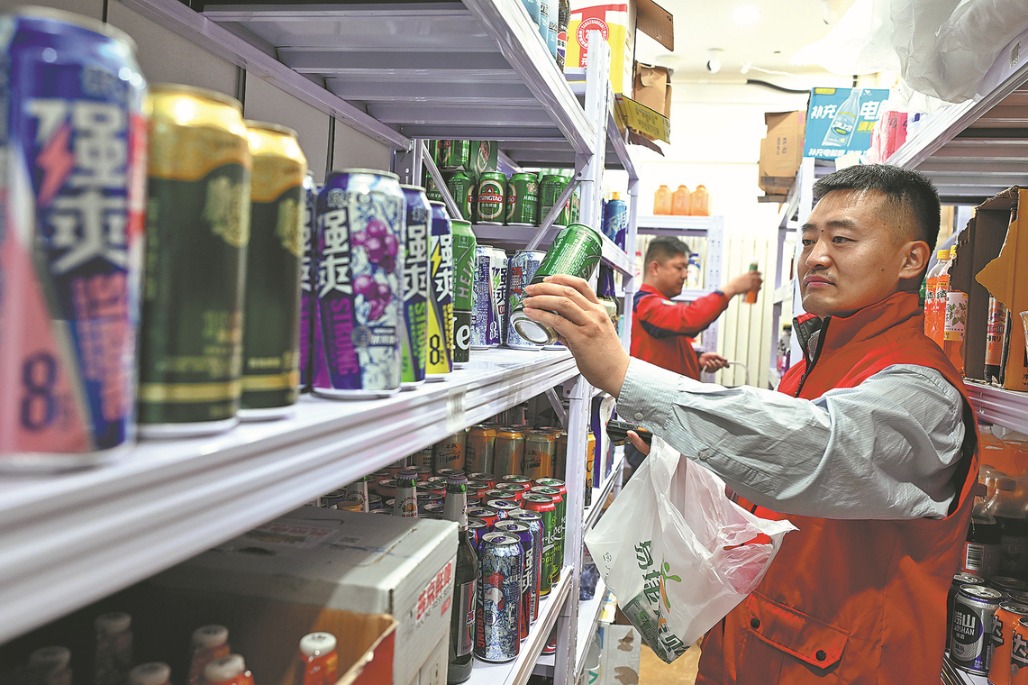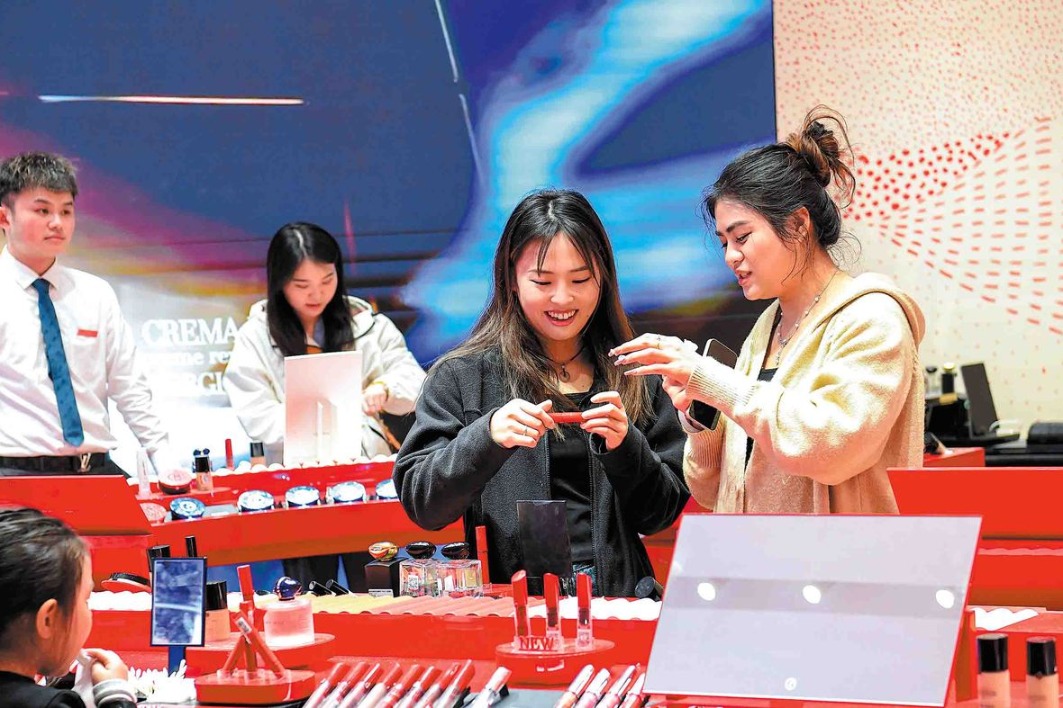Policy effort to bolster growth bears fruit
Growth: Support for tech innovation increased

Stepping up policy support for the manufacturing sector will be necessary for China in the second half of the year in order to stabilize employment and ensure a steady growth trajectory amid lingering uncertainties, economists and analysts said.
Their remarks came as the latest data showed that earlier policy efforts to bolster economic growth have continued to bear fruit, with key indicators of China's manufacturing sector improving in June as production and market orders picked up.
However, they warned that the sector still faces mounting headwinds — including falling sales prices, rising receivables and intensified market competition amid faltering external demand — and these are weighing on employment and reinforcing the need for stronger policy buffers.
"Supply and demand in the manufacturing sector both improved in June," said Bai Wenxi, vice-chairman of the China Enterprise Capital Union.
"Companies, however, remained cautious in arranging production plans amid lingering uncertainties of domestic and external demand," Bai said, adding that intensified market competition is continuing to squeeze profit margins for manufacturers as the drop in sales prices has been steeper than that for raw material prices.
The Caixin China General Manufacturing Purchasing Managers' Index, a privately surveyed barometer of the sector's health, rose to 50.4 in June from 48.3 in May, showing that the manufacturing sector resumed expansion after a contraction in May, as earlier policy measures aiming to stabilize the economy continued to take effect.
Despite the improvement, media group Caixin said in a report on Tuesday that in June, manufacturers faced declining output prices at the fastest pace in five months as they had to cut prices to boost sales, while staying generally cautious with hiring due to cost control considerations and reduced optimism regarding output in the next 12 months.
The official manufacturing PMI survey, released by the National Bureau of Statistics on Monday, provided a similar picture. Although increased production and market orders sent the PMI reading higher at 49.7 in June from 49.5 in May, sales prices and employment in the sector continued to drop, with the activity of small manufacturers contracting more sharply.
Charlie Zheng, chief economist at Samoyed Cloud Technology Group Holdings, emphasized the need for additional fiscal and monetary support to sustain the sector's recovery, including advancing tax cuts for smaller manufacturers and reducing interest rates and the reserve requirement ratio — the amount of cash that banks must keep as reserves — to ease financing costs for businesses.
Zheng said that such efforts are of great significance, as the impact of international trade policy uncertainties on Chinese exporters may further manifest in the second half of the year, while some manufacturers could face funding difficulties as they pursue industrial upgrading and transformation.
Bai said that targeted support for industrial upgrading should be considered, including scaling up the issuance of local government special bonds and central bank lending aimed at supporting technological and equipment upgrades and attracting more investors to the newly launched tech-focused board in the bond market.
The People's Bank of China, the country's central bank, vowed on Friday to amplify the intensity of monetary policy adjustments and step up support for technological innovation and equipment upgrades, after launching a series of measures earlier in the week to boost consumption.
Anna An, president of Henkel China, said the German industrial and consumer goods group recognizes China's strong commitment to developing high-end manufacturing and related services and has greatly benefited from its rapid growth in key sectors, such as automotive, consumer goods and electronics.
The National Bureau of Statistics said the PMIs for equipment manufacturing and high-tech manufacturing came in, respectively, at 51.4 and 50.9 in June, staying in expansionary territory for two consecutive months.




































